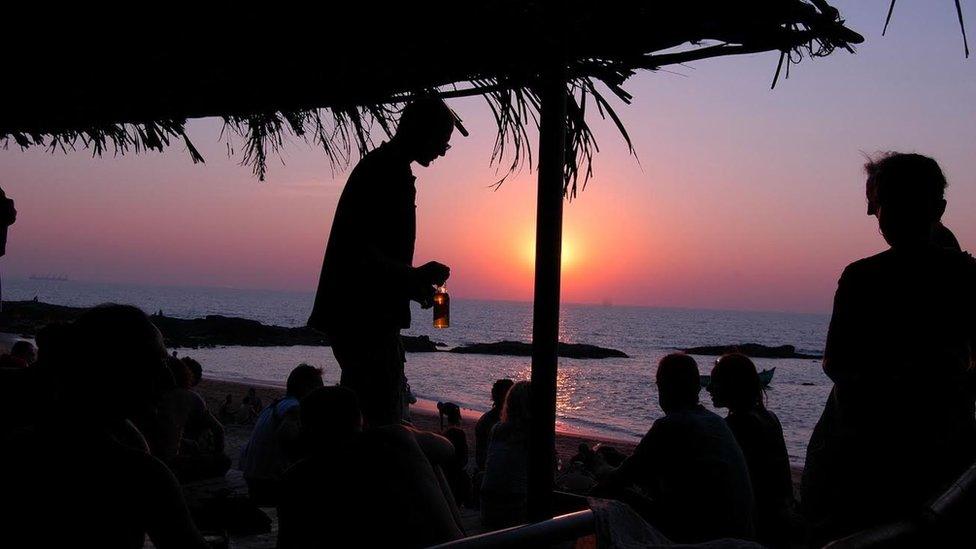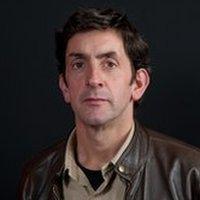How did Scarlett Keeling die? A mother's fight for justice
- Published
'Thinking of Scarlett still really hurts'
"I know she's not still here, but it feels like a part of her is," Fiona MacKeown says when we return to the place on a Goa beach where her daughter died.
Scarlett Keeling's body was found just after dawn on the morning of 18 February 2008.
Fiona has been fighting for justice for her daughter ever since.
It has been an epic battle.
The police insisted it was an accidental death; Fiona was convinced her daughter had been murdered.
But she did not just have to fight the Indian authorities, she also had to fight to protect her reputation and that of her daughter.
Scarlett's death became a huge story both in the UK and India, in large part because of Fiona's unconventional lifestyle.
Controversially, she had allowed 15-year-old Scarlett to return on her own to the beach where she was to die.
Fiona and her then boyfriend had taken her nine children on a six-month holiday in India.
The family had stayed on a Goa beach for two months, and then moved down the coast.
But Scarlett begged her mother to let her return for a big Valentine's Day party a friend was having.
"She hassled me stupid," Fiona tells me as we talk in front of one of the beach cafes.
"She was really unhappy, a big sulky teenager making my life really hard."
At first Fiona refused, but then a family friend, 25 year-old Julio Lobo, said she could stay in his aunt's house near the beach and that he would look after her.
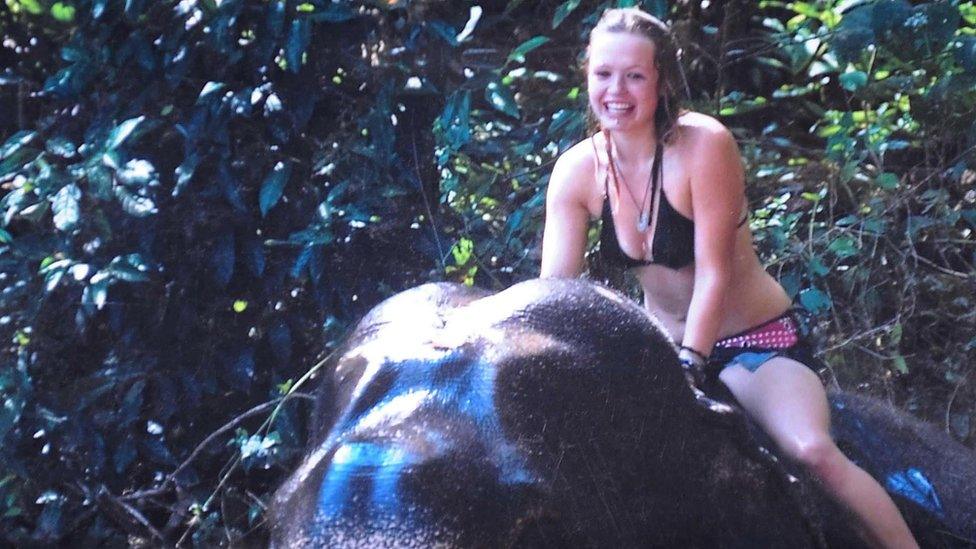
Scarlett Keeling was on an extended holiday with her family in India
That is when Fiona gave in.
"My last memory of her is her squealing and jumping up and down, hugging me and saying, 'Thanks mum, I love you,'" she has told journalists.
Scarlett died four days later, after a night partying in the bars and shacks that line the beach.
It was not long before Fiona was being accused of "dumping" her daughter on the beach.
"I am going to regret letting her go for the rest of my life," she says.
"If I could turn back the clock, of course I would change what I did.
"But who wouldn't say that?"
She admits she was naive when she came to India.
She says she had only ever been on holiday in Spain before, but still defends her parenting style.
"I am quite free with my children," she says.
"I don't believe in completely controlling them.
"I believe I am here to support them as they grow up and to help them.
"And I think everyone is entitled to their own beliefs about bringing up their children."
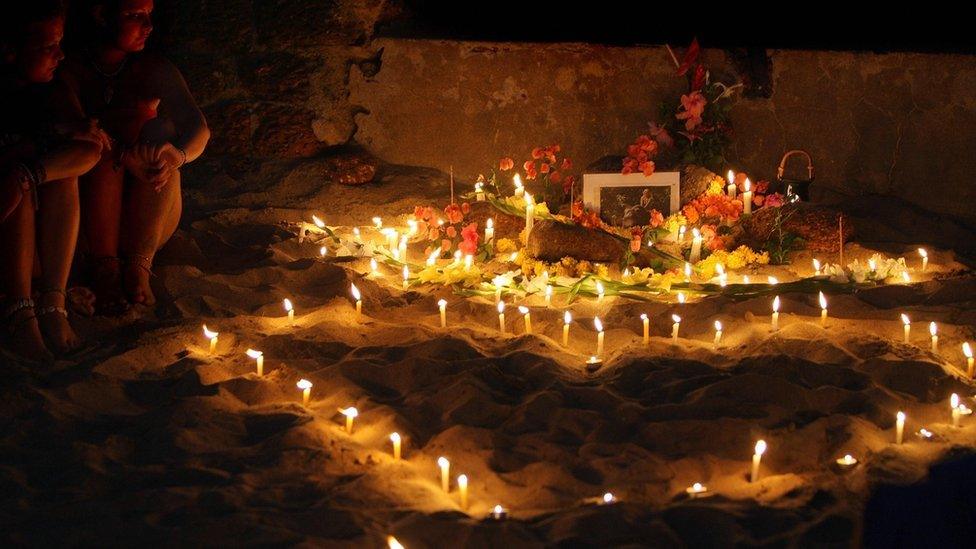
A vigil for Scarlett Keeling on the beach in Goa
It still amazes her how much criticism she has faced for how she chooses to live.
Fiona and her nine children then lived in a makeshift shack surrounded by caravans on a smallholding in North Devon.
She says one newspaper described her and her family as "soap-dodging pikeys".
Another took photos of Scarlett's old caravan and wrote about "the squalid bedroom that Scarlett Keeling used to sleep in".
"The newspapers kept going on about my appearance, my hair and clothes," she says.
"Why did they care about that and not about what had happened to my daughter?
"I just couldn't understand that."
Then, reporters got hold of Scarlett's diary, which the family had given to the Goan police.
It told how Scarlett had experimented with sex, drugs and alcohol in the days before her death.
"I had people in Britain saying I should have had my other children taken away, all sorts of horrible comments," Fiona says.
She tells me she tried to ignore what they were saying and focus on what for her was the priority - bringing those responsible to justice.
The police said it had been an accident; locals were saying Scarlett had been raped and murdered.
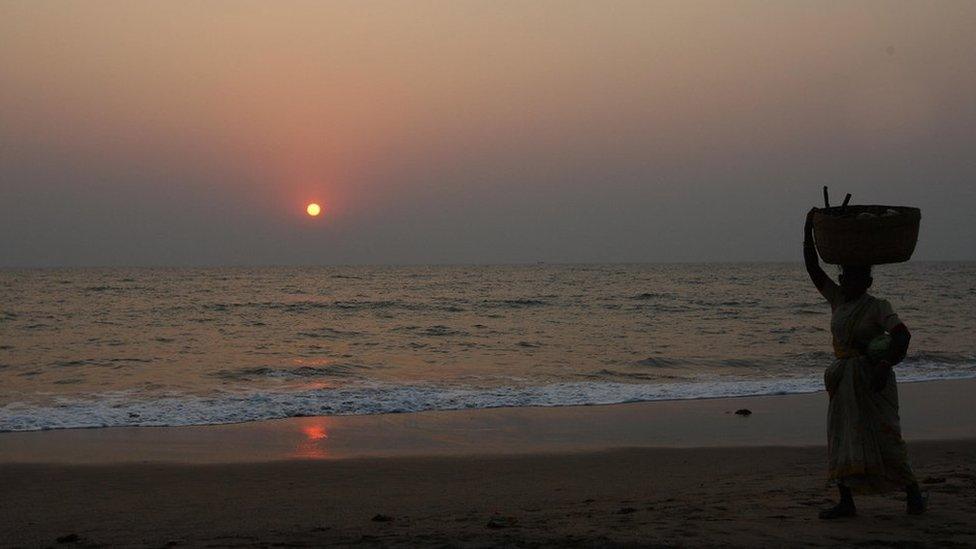
Goa's beaches draw thousands of British tourists each year
Fiona leads me up a path beside a small chapel - Goa has a large Christian population.
She points out where, two days after Scarlett's body was discovered, she found her sandals, pants and shorts lying in the dirt.
"What does this tell you about the police investigation?" I ask her.
"There was no investigation," she replies with disdain.
Helped by her lawyer Vikram Varma, she managed to get a second autopsy, which confirmed Scarlett had suffered some 50 separate injuries before she died - and that she had taken a cocktail of drugs, including cocaine.
That persuaded the authorities to take the case seriously.
India's top investigative body was assigned to the case.
Two men were charged, Samson D'Souza and Placido Carvalho.
Both deny grievous sexual assault and causing Scarlett's death, arguing she drowned accidentally while high on drugs.
Fiona still cannot believe it has taken so long for the court to give its verdict.
And in the last weeks before the trial ended, there was a major setback for the prosecution case, when a key witness refused to give evidence.
Michael Mannion, a British man also known as Masala Mike, was staying in Goa with Samson D'Souza and his wife when Scarlett died.
He has spoken many times of his horror at witnessing the attack.
He said he had spoken to Scarlett earlier in the evening and that she had looked intoxicated, and that later on he had seen Samson D'Souza on top of Scarlett outside a bar.
"I was in a state of complete panic, shock," he was quoted as saying. "I got on my bike and I rode off."
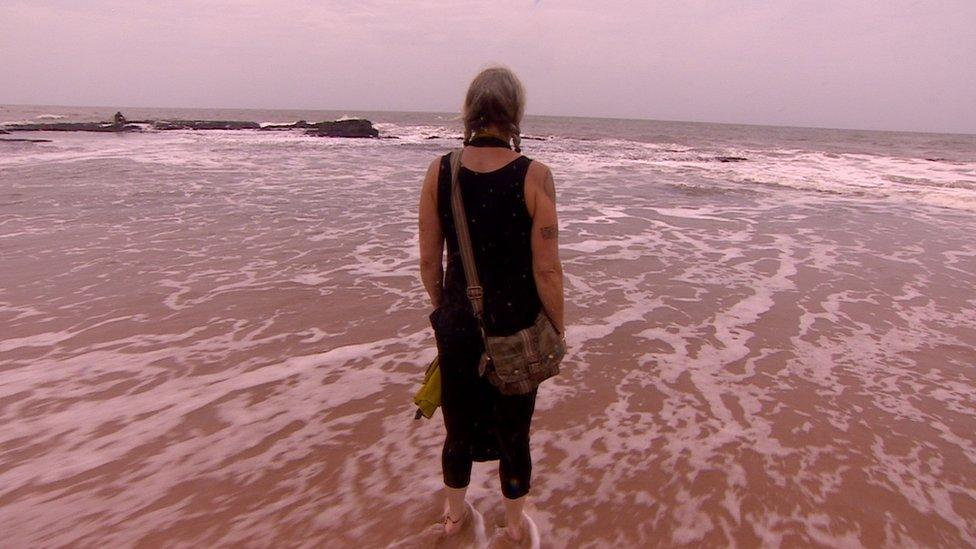
Fiona Mackeown expects fresh appeals whatever the court verdict
But when the Indian authorities arranged for him to give evidence by video link from the High Commission in London, Mr Mannion failed to attend.
Now, Fiona says she does not know which way it will go.
"If Michael Mannion had given his evidence I think we would have had a watertight case", she says.
But even if the two men are convicted, Fiona MacKeown knows it will not be the end.
"They will appeal if we get a guilty verdict, and I will appeal if we don't. If I can, I will," she says.
" It would be nice to think that it will be the end, but it almost certainly won't be."
I ask if she is ready to continue the fight. Without hesitation, she says she is.
"I have to go on, I have to for her, because she deserves it," she says.
"She deserves not to just be left like that and forgotten.
"She deserves to have some sense of justice for what has happened".
Fiona pauses for a moment. "She was a nice kid," she says.
Update: Placido Carvalho, 48, and Samson D'Souza, 37, have been cleared of charges of culpable homicide and grievous sexual assault at Goa Children's Court. Fiona MacKeown said she was "devastated" about the verdict.
- Published22 September 2016
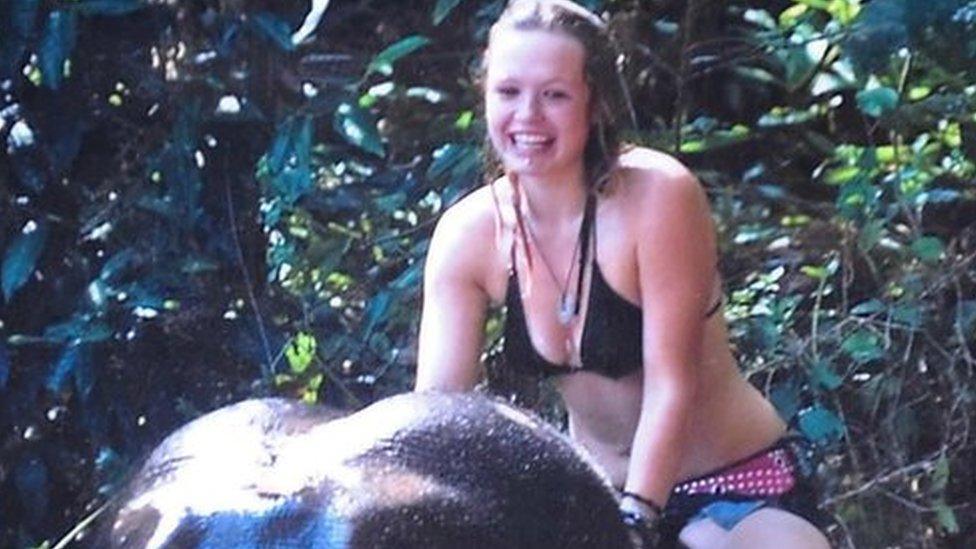
- Published27 September 2015
